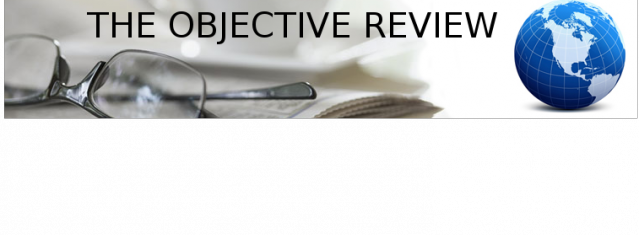Politics
Politic or politics the universal application
United we stand

The Objective Review (Source: The Objective Review / Joseph Kirk)
The Objective Review -
In ancient times people communicated through pictures and demonstrations, one of the most basic forms of communication. America today is a melting pot of culture, traditions and beliefs. For citizens, government and communities this presents a vast amount of diversities when communicating.
As a matter of fact, spoken languages are very different from written language and often effective communication can be hindered, due to slang and things being taken out of context. Society as a whole today, without unity, would have a multitude of problems without a common ground to communicate and understand each other. In the vast diversities of cultures, even within a community, citizens and government must work together to achieve the common goal of "life, liberty and the pursuit of happiness."
Most people forget that politic means Government and that Politics actually means governments. In America, there are many forms of government such as local, Federal, State and even "we the People".The timeless Motto, E Pluribus Unum, means many are one. Which brings light to the English words United we stand. The people vote, the representatives represent and on the list goes. The other saying goes: "United we stand divided we fall."
The tour of Ocala's city hall was impressive to say the least, the people were warm and inviting. While there, I found additional programs, out reach and public functions provided for the community including volunteer programs through citizens and organizations. It is no wonder the city of Ocala is such a success. Tomorrow we will be Interviewing a few officials, citizens and a community film project, Only Another Day", on a job well done.
A United States Supreme Court said it best:
"The greater the importance of safeguarding the community from incitements to the overthrow of our institutions by force and violence, the more imperative is the need to preserve inviolate the constitutional rights of free speech, free press and free assembly in order to maintain the opportunity for free political discussion, to the end that government may be responsive to the will of the people." New York Times Co. v. US 403 U.S. 713 No. 1873
"The greater the importance of safeguarding the community from incitements to the overthrow of our institutions by force and violence, the more imperative is the need to preserve inviolate the constitutional rights of free speech, free press and free assembly in order to maintain the opportunity for free political discussion, to the end that government may be responsive to the will of the people." New York Times Co. v. US 403 U.S. 713 No. 1873
Freedom of speech in the United States is protected by the First Amendment to the United States Constitution and by many state constitutions and state and federal laws. The freedom is not absolute; the Supreme Court of the United States has recognized several categories of speech that are excluded from the freedom of speech, and it has recognized that governments may enact reasonable time, place, or manner restrictions on speech.
Criticism of the government and advocacy of unpopular ideas that people may find distasteful or against public policy are almost always permitted. There are exceptions to these general protections, including the Miller test for obscenity, child pornography laws, speech that incites imminent lawless action, and regulation of commercial speech such as advertising.
Congress shall make no law respecting an establishment of religion, or prohibiting the free exercise thereof; or abridging the freedom of speech, or of the press; or the right of the people peaceably to assemble, and to petition the Government for a redress of grievances.
-The First Amendment, United States Constitution
Ocala, Florida has been selected as one of the examples being selected from communities, both foreign and domestic, for our upcoming article on politics, government and the people. How it all works and is designed with perfection to work well in a united society.
-The First Amendment, United States Constitution
Ocala, Florida has been selected as one of the examples being selected from communities, both foreign and domestic, for our upcoming article on politics, government and the people. How it all works and is designed with perfection to work well in a united society.
"The legitimate object of government, is to do for a community of people, whatever they need to have done, but can not do, at all, or can not, so well do, for themselvesin their separate, and individual capacities. In all that the people can individually do as well for themselves, government ought not to interfere. The desirable things which the individuals of a people can not do, or can not well do, for themselves, fall into two classes: those which have relation to wrongs, and those which have not. "
"Each of these branch off into an infinite variety of subdivisions. The first that in relation to wrongsembraces all crimes, misdemeanors, and nonperformance of contracts. The other embraces all which, in its nature, and without wrong, requires combined action, as public roads and highways, public schools, charities, pauperism, orphanage, estates of the deceased, and the machinery of government itself. From this it appears that if all men were just, there still would be some, though not so much, need for government." ~Abraham Lincoln
more information: https://www.theobjectivereview.com
Government Politics Freedom Community Unity Laws Policy Rules Regulations United States Human Rights Constitutions Society
Liability for this article lies with the author, who also holds the copyright. Editorial content from USPA may be quoted on other websites as long as the quote comprises no more than 5% of the entire text, is marked as such and the source is named (via hyperlink).






